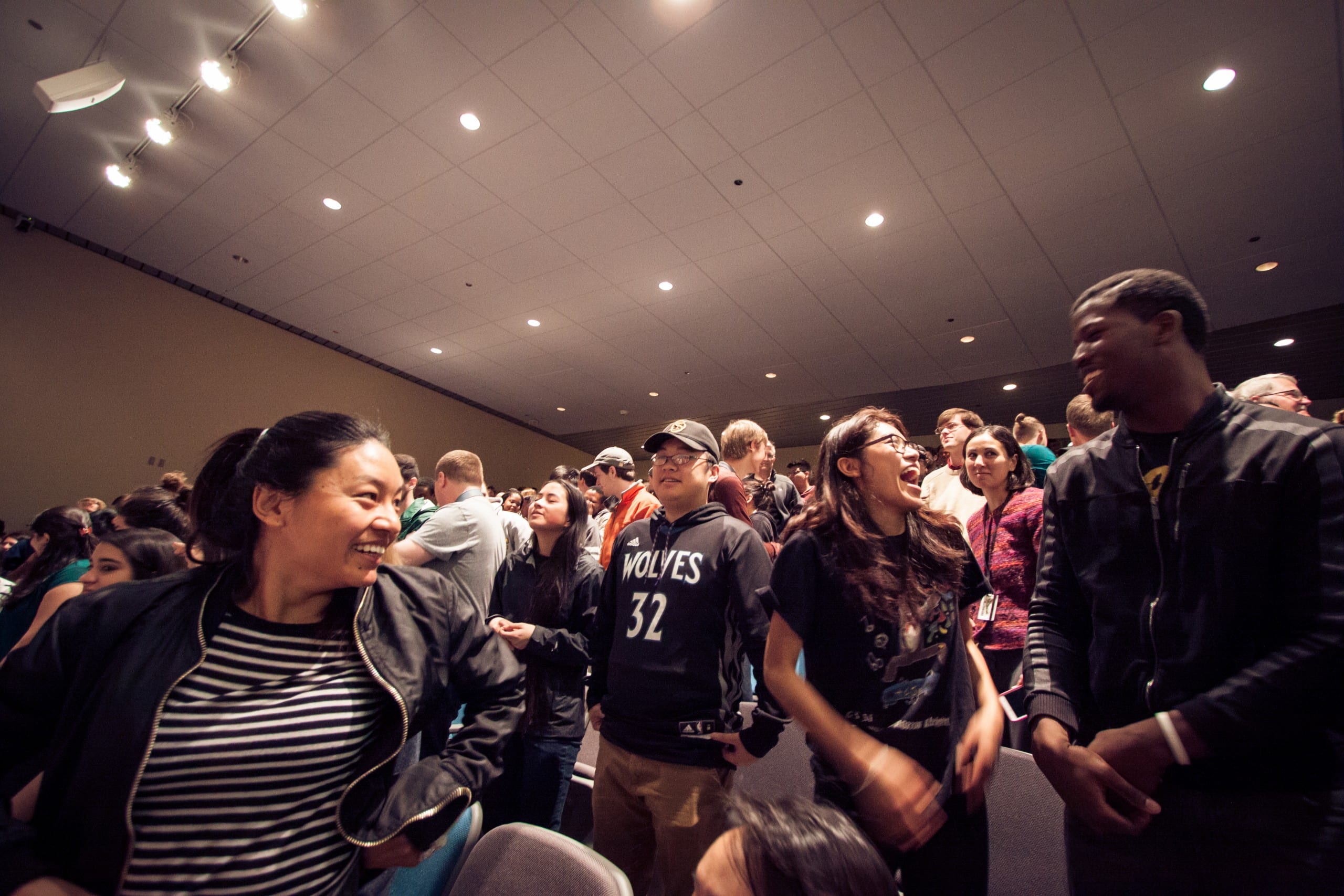Support in College
 “Representation is a big, it’s definitely a big factor in determining how comfortable you feel in college,” noted Rafa Helal. Although Minnesota is home to over 300,000 Asian Americans, they often lack representation in Minnesota schools. In 2019, the American Council on Education reported that people of color (POC) represent 42.2 percent of service and maintenance staff. This explains why the majority of students are more likely to encounter people of color in service roles than in faculty or leadership positions. In terms of faculty, only ¼ of POCs serve the following positions: college and university administrators, chief of student affairs, and student life officers.
“Representation is a big, it’s definitely a big factor in determining how comfortable you feel in college,” noted Rafa Helal. Although Minnesota is home to over 300,000 Asian Americans, they often lack representation in Minnesota schools. In 2019, the American Council on Education reported that people of color (POC) represent 42.2 percent of service and maintenance staff. This explains why the majority of students are more likely to encounter people of color in service roles than in faculty or leadership positions. In terms of faculty, only ¼ of POCs serve the following positions: college and university administrators, chief of student affairs, and student life officers.
Source: National Association of Independent Schools. 2017. “How Schools Can Improve Diversity, Equity, and Inclusion.”
Student Experiences
Representation in College
At some schools, Asian Americans are not considered an underrepresented minority. This perspective reflects the impact of the well-documented “model minority myth,” which reinforces the stereotype that success is universal among Asian Americans. As a result, Asian American students do not receive the same level of academic support as other POCs. Representation is an increasingly important factor for students. Beyond a simple statistic, high school seniors like Taylor Lander reaffirm the need for POC faculty members. She explains, “When it came to my college choice, my identity had a lot to do with it. When I was looking for a college, I wanted to make sure that I wasn’t hearing the same voices everyday. It’s so much more than just about the students, but who I’m hearing, who is teaching me that I can look to and know they understand where they are coming from.”
How do first generation immigrants find support in college?
Similarly, many immigrant and refugee students struggle to find their own supportive network of peers in higher education. Pao Thao reports that “it was harder for them [the Americans] to understand me and my background and where I come from than it was for me to understand them.” Why is this? Unlike their Asian American counterparts, immigrants and refugees have to learn English and become accustomed to different cultures and norms of the United States. An unwelcoming school environment further exacerbates feelings of isolation. As Sam Ouk, a Cambodian refugee and now an educator himself, recounts that when he arrived in Rochester, MN, “there were a lot of people who didn’t know how to react to us, plus we did not know how to react to them. All of a sudden there are negative stereotypes about Asians. Asian being soft. Asians being quiet. Asians being weak. Asians being gay. That really hurt us. We thought we survived killing fields, that we are strong, that we are warriors.”

Other first generation immigrant and refugee students mention they find it hard to emotionally bond with certain groups of people. As a Chinese American and first generation immigrant, Yanai Sun finds herself having to navigate different social groups. She says, “On campus, the internationals are only bonded to the international kids and the Americans only hang out with Americans and the same for me. I only hangout with Chinese Americans who have an immigration background because of how we all are trying to assimilate to the culture while holding on that little bit of our original heritage.” Touzeng Lor simply accepts his estrangement due to his immigration background, stating, “You don’t feel belong, but you have to because you have no other choice. You need a job. And then that’s the only way you have to do it. So even if they bully you or call you names, you have to do it anyway because you have no choice.”
Belonging? Or not belonging?
Sources:
American Council on Education. 2019 “Race & Ethnicity in Higher Education Summary.”
Council on Asian Pacific Minnesotans. 2019. “Council Annual Report 2019.”
Lee, Erika. 2009. “Asian American Studies in the Midwest: New Questions, Approaches, and Communities.”



